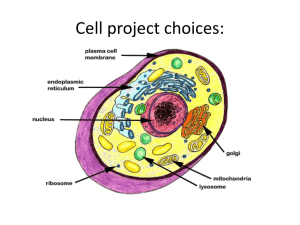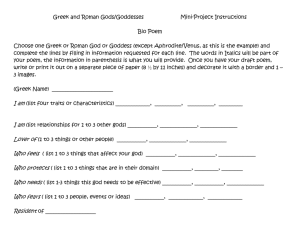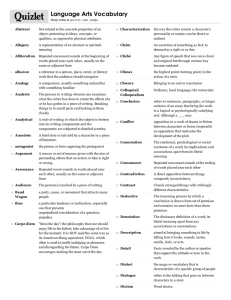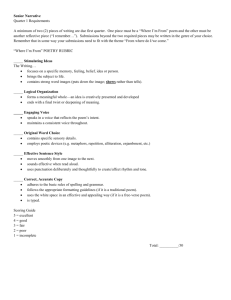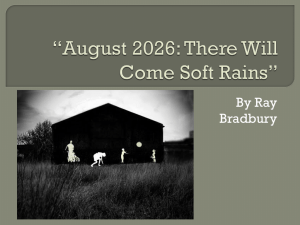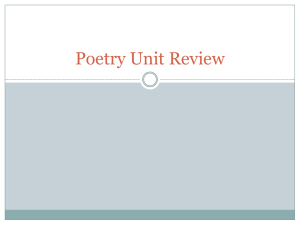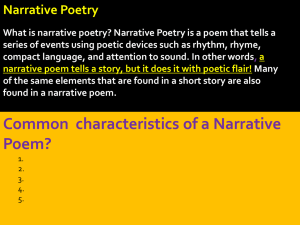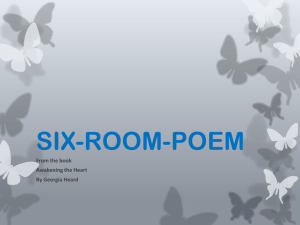Without Title
advertisement
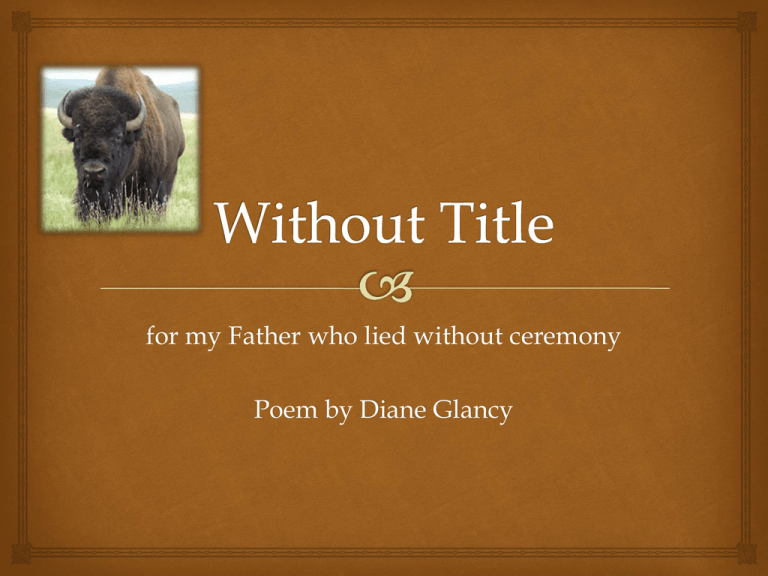
for my Father who lied without ceremony Poem by Diane Glancy Discuss… What does the title tell you? What is the meaning of the subtitle? What is missing from the father's life? Select specific words and/or phrases from the poem that gave you this information. What word or words does the author repeat in the poem? Why does the author repeat this word or these words? How do you relate to this poem? Compare this to someone or something you have seen in your life. Explain in your journal. Without Title by Diane Glancy Move to your group. Choose two readers that will read the poem through twice to your group. Listen for tone and details of the narrator’s life. You will plan and present a short skit of an experience you would view if you peeked into this family’s life. All group members must play a part in the skit. Journal Wrap-Up What are your thoughts about this family after conducting your skit? Explain. Without Title Narrative Writing Journal Entry Think first… What would a day in the life of the speaker’s family be like? What dialogue would you expect to hear? What activities would you see happening? What emotions, tone, would you experience in this family? Now write… Write a brief narrative about one scene in the life of the speaker’s family, as if you are the narrator of the poem, "Without Title”. Use dialogue in your narrative. Share with your partner. Be ready to be called on to share with the class. A Day in the Life of My Father TITLE _____________________________ NAME __________________________ DATE __________________________ PERIOD ________________________ SUBJECT: A Day in the Life of AUTHOR __________________________ CHARACTERS SETTING(S) PROBLEM EVENTS OF STORY FIRST SECOND PROBLEM SOLVED BY THIRD LAST HOW WAS PROBLEM SOLVED HOW DOES WRITING THIS STORY MAKE YOU FEEL ABOUT THE FATHER? Literary Terms Study List Write these on a separate sheet of paper. Place this in your “Notes” tab. Literary Terms 1. 2. 3. 4. 5. 6. 7. 8. 9. allusion synesthesia repetition personification conceit synecdoche euphemism situational irony colloquialism 10. verbal irony 11. dramatic irony 12. rhetorical question 13. paradox 14. oxymoron 15. analogy 16. soliloquy 17. epiphany Find your partner! Read the term and definition or the example you have been given. Find the person that matches your definition or example. Find a seat so that you can work together. Poster Create a poster: Write the term in LARGE LETTERS at the top of the poster. Rewrite the DEFINITION so that it makes sense to those that will read your poster. Your poster needs to have a VISUAL. Create an example that can be used in the narrative “A Day in the Life of…”
